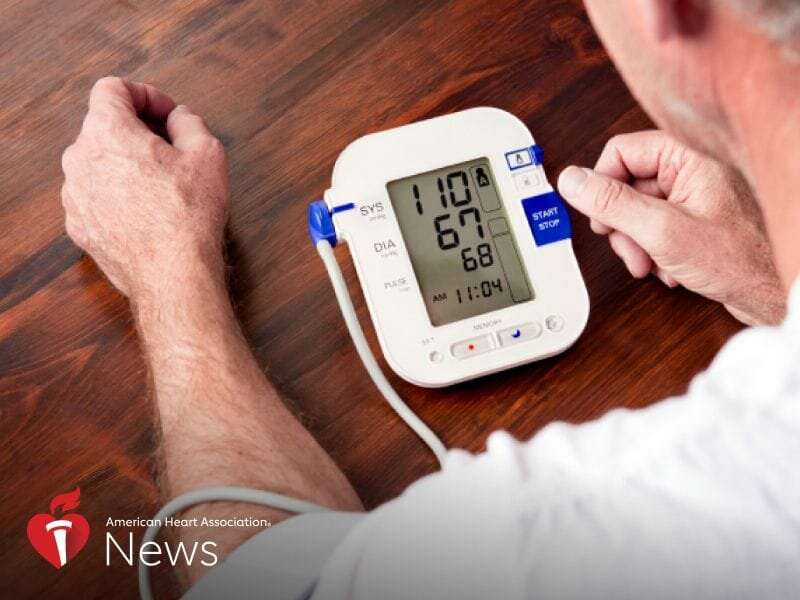Fluctuating blood pressure after stroke could mean higher risk of death

Experts already know there's a link between high blood pressure and stroke, but a growing body of research suggests yo-yoing blood pressure also might play a role.
A new study, presented this week at the American Stroke Association's International Stroke Conference in Honolulu, delved deeper into the topic by researching whether increased blood pressure variability after a stroke is associated with risk of death.
Researchers looked at data from 1,947 patients who had four to five blood pressure readings in the 24 hours after a stroke. After adjusting for various factors, they found that patients with more variation in their systolic blood pressure, the top number in the measurement, had a higher risk of death within 90 days.
Dr. Adam de Havenon, the study's lead author, said the results reinforce the importance of blood pressure variability as a risk factor for poor outcomes after a stroke.
"It's a fertile topic that's gaining attention, and I would argue that we need to pay even more attention to it," said de Havenon, an assistant professor of neurology at the University of Utah School of Medicine in Salt Lake City.
De Havenon said blood pressure variability in stroke patients might be easily treated with calcium channel blockers a blood pressure drug that decreases variability instead of using beta-blockers, which increase variability.
"In my own practice, I've started to think about ways to reduce variability using different medications," he said. "It's something that might be easily addressed with small modifications."
He said he asks some of his patients to measure and record their blood pressure at home at various times during the day.
"That way, you get a sense of which patients have a rock-solid blood pressure that's well-controlled by medication, and which patients have blood pressure that's jumping around during the course of the day," de Havenon said. "That information is helpful, because you can change medications one in the morning, another medicine at night."
He called for future studies on the best way to identify patients with variability and the best pharmacological protocols to treat it.
Dr. Paul Muntner, a professor of epidemiology at the University of Alabama at Birmingham School of Public Health, said the research "could allow us to direct treatment more intently to a population that's at a higher risk."
However, he said until clinical trials are done on the topic, questions remain.
"It's premature to say that people should be prescribed certain medications specifically for blood pressure variability. The jury's still out for that," said Muntner, who was not involved in the research.
"The other interesting question is, is it blood pressure variability itself that increases the risk, or is it some other underlying condition, like high levels of inflammation or stiff arteries, which could also cause large fluctuations in blood pressure?" he said.
When it comes to blood pressure variability, Muntner said electronic health records and outpatient self-testing will make life easier for patients and doctors alike.
"As we utilize technology more and more, we'll be able to get a better long-term picture of a person's risk based on their blood pressure over a period of 24 hours or several months," he said, "and that's going to really help us personalize risk and treatment."
American Heart Association News covers heart and brain health. Not all views expressed in this story reflect the official position of the American Heart Association. Copyright is owned or held by the American Heart Association, Inc., and all rights are reserved. If you have questions or comments about this story, please email editor@heart.org.



















